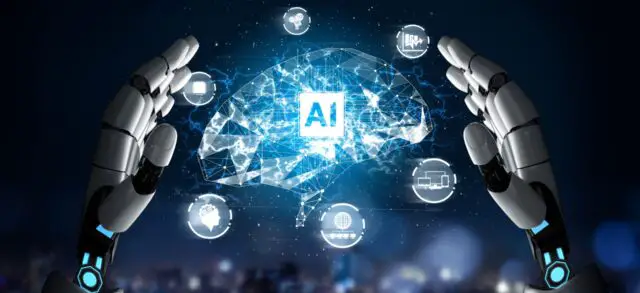
Artificial intelligence gains rapid traction in India. The nation uses AI to address key challenges and push economic growth. AI impacts sectors like agriculture, healthcare, and education. Government initiatives and private sector investments accelerate this change.
In agriculture, AI helps farmers improve crop yields. Systems analyze soil data and weather patterns. This provides farmers with precise recommendations. For example, the National AI Portal of India shows projects that use AI for pest detection. This reduces crop loss. Data from the Ministry of Agriculture and Farmers Welfare shows a push to adopt AI-driven solutions.
Healthcare sees significant change. AI aids in diagnostics and drug discovery. AI analyzes medical images to detect diseases early. Telemedicine platforms use AI to provide remote consultations. This increases access to healthcare in rural areas. The NITI Aayog’s strategy documents highlight AI’s role in improving healthcare delivery. They promote AI-based solutions for public health issues.
Education also experiences AI’s impact. AI personalizes learning experiences. AI tutors provide customized feedback to students. Platforms use AI to analyze student performance and identify areas for improvement. The National Education Policy 2020 promotes the use of technology, including AI, to enhance learning outcomes.
The government actively supports AI adoption. The National Strategy for Artificial Intelligence focuses on research and development. It aims to create a skilled workforce. The government invests in AI research centers and incubators. This supports the growth of AI startups.
Private sector companies invest heavily in AI. They develop AI-powered solutions for various industries. E-commerce platforms use AI for personalized recommendations. Financial institutions use AI for fraud detection. Tech companies develop AI-powered language processing tools.
Data privacy and ethical considerations remain important. The government works on regulations to ensure responsible AI use. Discussions focus on data security and bias in AI algorithms. NITI Aayog proposes frameworks for ethical AI development.
Challenges exist. India faces a shortage of skilled AI professionals. The digital divide limits access to AI technologies in rural areas. Infrastructure development needs to keep pace with AI adoption.
The use of regional languages in AI systems gains focus. AI models need to understand and process diverse Indian languages. This helps reach a wider population. Projects develop voice-based AI applications in local languages. This makes AI more accessible.
AI impacts job markets. Automation changes some job roles. New jobs emerge in AI development and related fields. The government works on skill development programs to prepare the workforce. These programs focus on AI and data science skills.
The use of AI in governance increases. AI helps improve public service delivery. AI analyzes data to identify trends and patterns. This supports better policy decisions. The government uses AI for citizen feedback analysis.
AI in logistics and transportation improves supply chain management. AI optimizes delivery routes and reduces costs. AI-powered traffic management systems improve urban mobility. The Ministry of Road Transport and Highways looks at AI for traffic management.
AI in manufacturing improves production processes. AI-powered robots automate tasks. Predictive maintenance reduces equipment downtime. This increases productivity. The Department for Promotion of Industry and Internal Trade supports the use of AI in manufacturing.
The development of AI in India involves collaboration between government, academia, and the private sector. Research institutions work on cutting-edge AI technologies. Startups develop innovative AI solutions. This creates a strong AI ecosystem.
AI adoption faces hurdles. Data availability and quality impact AI model performance. Infrastructure limitations in rural areas slow down adoption. Public awareness about AI benefits and risks remains low.
AI’s potential in India is vast. It can help solve complex problems. It can drive economic growth. It requires a focused approach. This includes skill development, infrastructure investment, and ethical considerations. India’s future has AI as a key part.


















